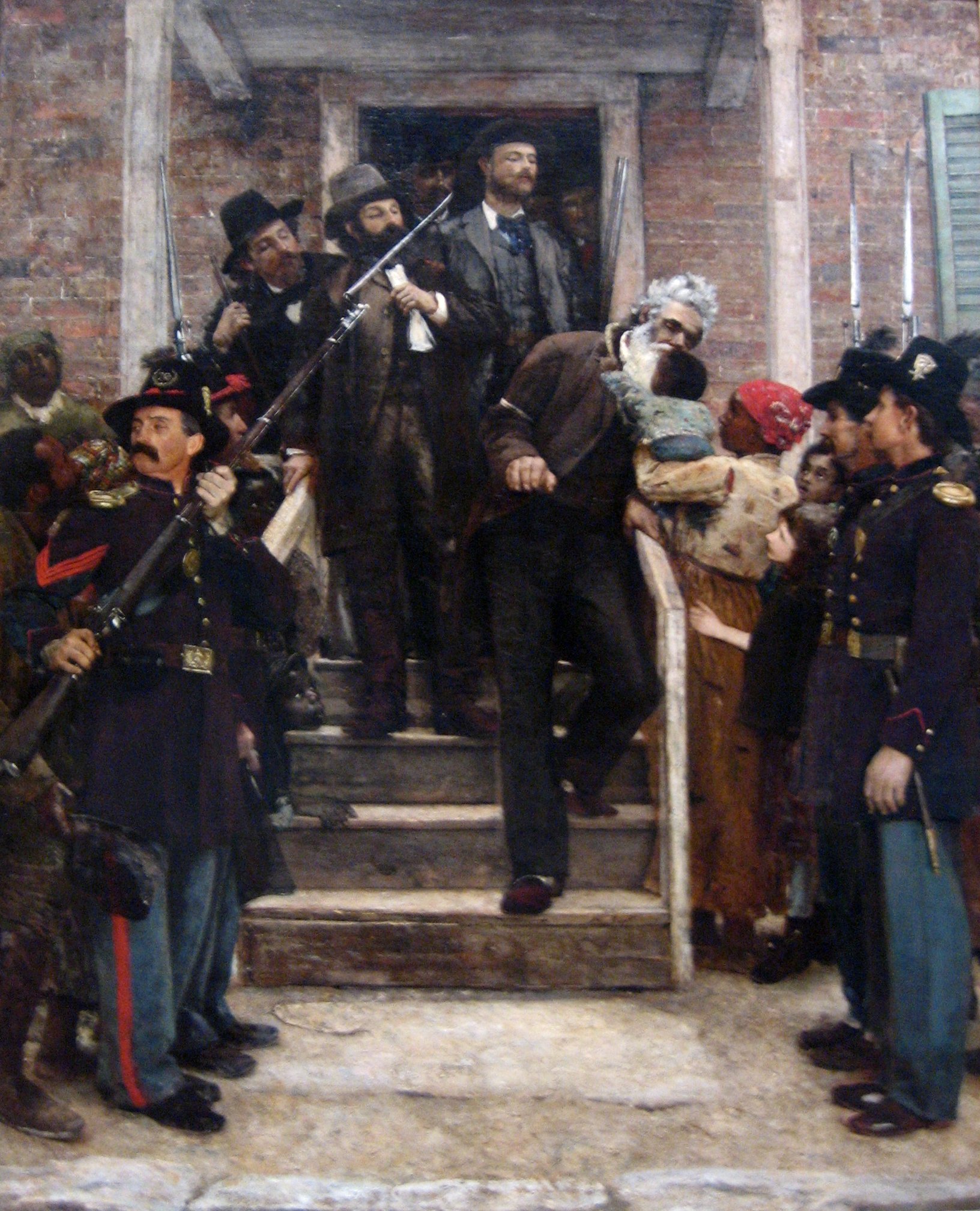 |
By 1860, 12.5 million slaves had been shipped to the Americas.
Only 10.7 million survived the voyage.
|
He was hanged one hundred and fifty years ago today.
There is much to his life and work that is perhaps not remembered today. His goal was to free the slaves which he did, but he didn't live to see it.
Brown led the raid at Harpers Ferry. It triggered secession and civil war that nearly destroyed the nation. In the century and a half since then, we have indeed made progress, but the root of discrimination Brown was fighting against still persists despite our best efforts for change. Why might that be?
Brown is an interestingly controversial figure. Depending on who you read, he was either a heroic martyr or a zealous lunatic. Unlike many northern abolitionists, Brown advocated an armed insurrection. He viewed the passive resistance of the many as inconsequential and without effect.
 |
| Brown being led to his hanging. |
Kansas was up for statehood; Brown hoped to bring the region into the union as a free state rather than a slave state. He hoped, with the help of Harriet Tubman and others, to raise an army, but lack of consensus plus layers of intrigue among abolitionists prevented the uprising of many on which Brown depended. At Harpers Ferry, the team captured the armory of 100,000+ weapons, but they couldn't withstand the counter assault. He and most of his men were captured, and Brown was tried for murder and treason along with two others. They were convicted and hanged.
On the morning of his hanging, December 2, 1859, Brown wrote:
"I, John Brown, am now quite certain that the crimes of this guilty land will never be purged away but with blood. I had, as I now think, vainly flattered myself that without very much bloodshed it might be done."
The North and South lost 620,000 soldiers, plus another 870,000 were wounded or missing.
At the heart of it all is a conflict of principle -- one person either is or is not more human than another. Whether discrimination is based on the color of their skin, their upbringing, their education, or their economic status, that's the principle at risk. How might we have acquired such flawed thinking? At the time of the Civil War, there were 3,950,000 slaves in the U.S. held by 390,000 slaveholders.
The methods of enslavement and oppression have changed, but for many in our culture and others, the same heart remains. What position might a thoughtful person of conscience take on the issue of
persistent and enforced inequality?















